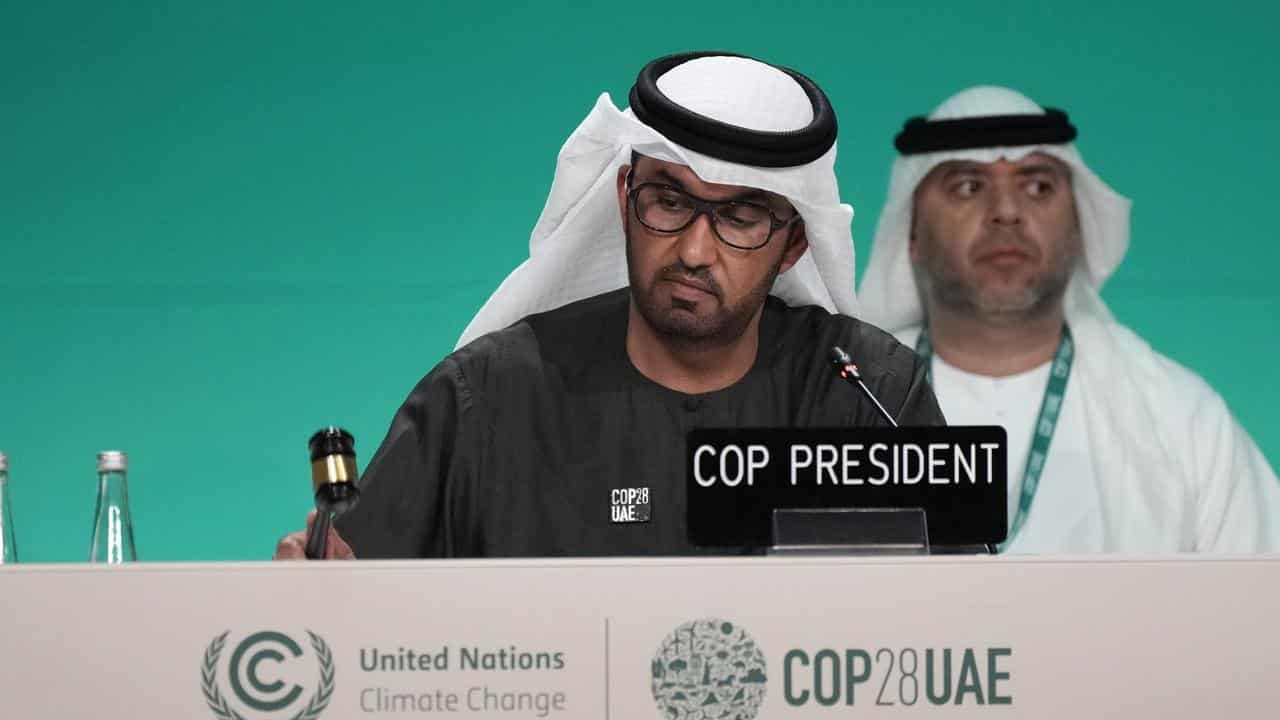
The COP28 Presidency has released a proposed text of a final climate deal that would, for the first time, push nations to transition away from fossil fuels to avert the worst effects of climate change.
The draft, released on Wednesday, is meant to reflect the consensus view of nearly 200 countries gathered at the conference in Dubai, where scores of governments have insisted on strong language to signal an eventual end to the fossil fuel era - over protests from members of the oil producer group OPEC and its allies.
"It is the first time that the world unites around such a clear text on the need to transition away from fossil fuels. It has been the elephant in the room. At last we address it head on," said Norway Minister of Foreign Affairs Espen Barth Eide.
Brazil's chief climate negotiator, Andre Correa Do Lago, said: "I think we should approve it".
China climate envoy, Liu Zhenmin, said the text was not perfect. "Some issues remain," he said, without elaborating.
Country representatives have been called to what the COP28 Presidency hopes is a final meeting later on Wednesday morning, where they could pass the deal and end two weeks of tough negotiations that have run a day into overtime.
Deals struck at United Nations climate summits must be passed by consensus, at which point individual countries are responsible for delivering on the agreements through national policies and investments.
The proposed deal would specifically call for "transitioning away from fossil fuels in energy systems, in a just, orderly and equitable manner ... so as to achieve net zero by 2050 in keeping with the science".
It also calls for a tripling of renewable energy capacity globally by 2030, speeding up efforts to reduce coal, and accelerating technologies such as carbon capture and storage that can clean up hard-to-decarbonise industries.
If adopted, it would mark the first time in three decades of COP climate summits that nations have agreed on a concerted move away from oil, gas and coal, which account for 80 per cent of global energy. Scientists say fossil fuels are by far the largest source of the greenhouse gas emissions driving climate change.
Kenya climate change envoy Ali Mohamed told Reuters the proposed deal was acceptable: "Our assessment is that we can live with this text."
Rachel Cleetus, policy director at the Union of Concerned Scientists welcomed the proposal but noted that it does not commit rich countries to offer more financing to help developing countries transition away from fossil fuels.
"The finance and equity provisions... are seriously insufficient and must be improved in the time ahead in order to ensure low- and middle-income countries can transition to clean energy and close the energy poverty gap," she said.
It was not immediately clear whether the proposed deal would win enough support to be adopted.
Organisation of the Petroleum Exporting Countries (OPEC) Secretary General Haitham Al Ghais said in a letter dated December 6 to OPEC members and allies at COP28 that the world should target emissions rather than fossil fuels themselves, rallying them to oppose any deal targeting oil.
OPEC countries together control nearly 80 per cent of the world's proven oil reserves along with about a third of global oil production, and their governments rely heavily on the revenues.




